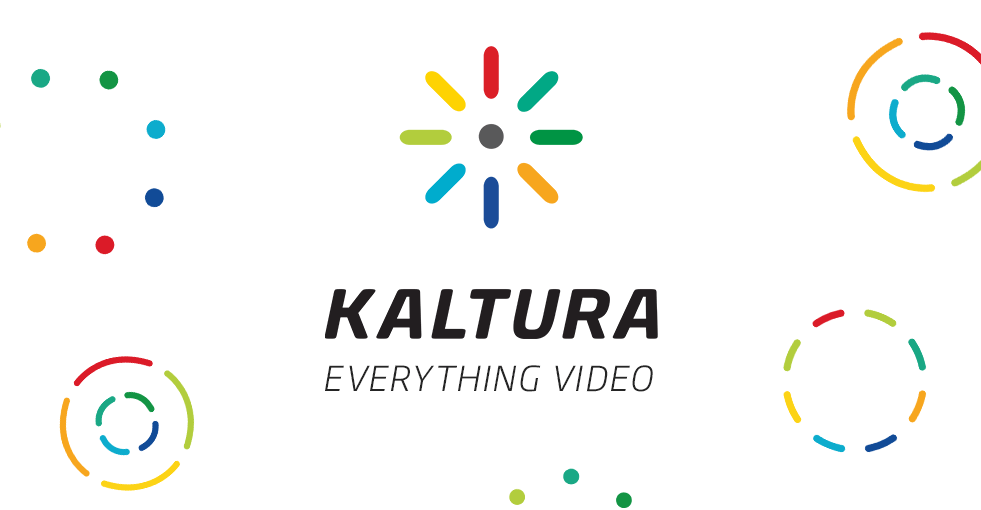Individuals and businesses have different needs for video hosting. Based on whether the content is paid or free, the technologies and tools required for video hosting are further different. In the following article, we take a list of the most popular options for online video hosting. We have tried to address the industry segment in which these tools suit the most, Pros and Cons associated with them.
What Are Video Hosting Sites?
Video Hosting Sites are service providers that enable you to host your videos for your eLearning, Media, and other online video platforms. By using a video hosting platform, you can easily upload videos and then embed them on your platform. These sites are widely used by eLearning, media, and other businesses to host their videos online.
If you have tried building your online platform from scratch, then you would have encountered the logic behind the storage of media files. By default, a CMS, LMS, or framework starts storing your videos in the same server where your web files are stored. These uploaded files also get delivered from the same server and utilize its bandwidth. This creates an additional burden on the server of storage and bandwidth consumption. This is the reason why Video Hosting Sites that have a scalable infrastructure with bug-free storage, encryption, and delivery setup are a must to have for saving cost and better user experience.
Explore More ✅
VdoCipher ensures Secure Video Hosting with Hollywood Grade DRM Encryption
VdoCipher helps 2500+ customers in over 120+ countries to host their videos securely, helping them to boost their video revenues.
You also get several important features such as a customizable player, which allows you to brand the player and decide what controls you want to show. On top of it, you also get a CDN which ensures that your users are able to access your content seamlessly regardless of their geographic location. Other important features can be video analytics and DRM protection among others.
Why Do You Need Video Hosting Sites?
Any video platform, you might have come across hosts their website on a video hosting solution. They usually upload the videos on the video hosting servers and then embed them on their own platform.
But then, you might be wondering why they host it on another platform and not their own server.
The answer is simple, video files are large in size and with megapixels increasing, they tend to become even larger. Hosting them on your own server would end up slowing your website a lot. This is due to the consumption of additional space and bandwidth capacity of your web server. A low-resource site will eventually slow down and might even crash. You would’ve come across a website with lots of images that take forever to load. Now imagine this with several videos, a web page would end up getting loaded forever.
Cost wise web hosting server is usually dearer than a media storage server. Additional cost includes CDN, transcoding, encryption, DRM licensing, integration, and much more. A secure video hosting site does all that for you at a highly affordable cost even when you compare that with a non-secure hosting provider.
Why Self-Hosting Videos is a bad idea
There are several reasons why you should not self-host videos and go for video hosting sites. A few of the important reasons have been listed below.
Server and CDN setup, Scaling, Automation for streaming
When hosting videos on static web pages, each time the webpage loads the video is loaded as well. Handling 100s of users loading your video player each minute would require multiple cores of servers and Content Delivery Network implementation. The video hosting infrastructure should have the capacity to serve users at peak times when there are maximum users on the page.
It is a lot different doing these for static sites & video stuff.
Protecting Videos from Download and Piracy
If you choose to self-host videos, you would most likely be providing a direct video URL from your video hosting server to the site. This can make your video vulnerable to download from a lot of free downloaders and plugins such as IDM and Download Helper. These plugins are widely available on the web, which leads to a loss of revenue from content owing to video piracy.
Encoding for multiple devices & Bitrates
When self-hosting videos, you would need to transcode and encode your videos in several different quality and formats so that it can run on different devices. Encoding is again a server + CPU-intensive process. A different file is needed when viewing a video on the phone and when viewing the video on your PC or HD television. You would need to transcode videos for desktop, iOS, and Android separately. Also, encoding is required for different bitrates, so that your viewers can watch your videos across all devices smoothly and seamlessly.
Video Player – Controls, Adaptive, Customization
Video.js is a JavaScript and CSS library that is used as an HTML5 video player. Using the Video.js library requires a great level of coding. For this reason, it is recommended that you opt for a secure online video platform (OVP) over coding from scratch. Apart from the initial setup, additional customizations required are adding desired colors, themes, bitrates, sizes, and adaptation to aspect ratio. This customization is required to allow video playback across multiple devices and browsers.
Costs of a Large development team & Time to launch a Video business
If you are willing to set up your own video infrastructure in-house, it is important that you look at the bottom line of costs and time of development. This includes spending on the development team, at which point you would need to understand the salary costs of developers. Besides, in-house development would take months to launch, in which period you would need to bring together a team for setting up the video infrastructure and understanding the hosting requirements. Besides the one-time setup costs, you would need a dedicated team to troubleshoot problems.
Features and Advantages of Video Hosting Sites
- multi-DRM protection – No video creator wants their premium content to be pirated. This is the reason why you need to have the best encryption and dynamic key exchange mechanism for your video protection. Google and Apple provide this technology with the help of video hosting partners like VdoCipher for piracy protection.
- Dynamic Watermarking – there are incidents when an authorized user tries to screen capture a video using a tool or camera. Preventing screen capture on some browsers is difficult and that is why the dynamic watermark feature having the details of authorized users acts as a deterrent.
- Video analytics – Key video analytics parameters include the number of visitors, traffic source, view time, and other engagement metrics. Based on the video analytics, you can tailor and improve the video performance.
- Content Delivery Network (CDN) – once your video file gets uploaded, its copies are made at multiple locations across the globe to provide the fastest connection with the end user. It improves latency and reduces the load on the main server, thus improving the overall delivery and user experience.
- Adaptive Bitrate Streaming – this technology automatically adjusts the video quality based on the viewer’s internet speed. Irrespective of low connectivity or remote locations, videos are delivered at the best possible resolution. For doing this multiple-size copies are made and delivered as per the required bitrate.
- Multi-device compatibility – a video hosting site must provide playback compatibility with various devices and browsers. HTML5 playback, iOS playback, and other device or browser playback should be bug-free.
- Multi-Language Video captioning – Proper captioning makes video accessibility much wider, covering those who are deaf or hard of hearing. As captions have written transcripts of the video, the level of comprehension is further improved. This leads to better engagement and availability of content to a global audience and non-native speakers. Dashboard, APIs and the player must have compatibility to add and switch the caption language.
- Plugins, APIs, and SDKs – for easy integration with open-source CMS, LMS, framework, and coding languages, a video hosting site also provides plugins, APIs, and SDKs to connect. For example, APIs can be used to automate various uploading and embedding tasks.
Need of Security in Video Hosting Sites
A platform having the requirement of secure video hosting usually has premium video content that they need to protect. It is important to understand the phases when a video is vulnerable to a leak. The first phase is when the media is uploaded and stored at a cloud location. The second phase is when the video is getting delivered for playback.
An unencrypted video stored in cloud storage is always prone to get copied and since it does not need any unlocking, it is protection free. Similarly, the downloader tools easily capture the URL of the video stream and download the whole file during the playback. Even if the file is encrypted, the key to decryption is usually getting passed through network headers to the browser or player. This is the reason why advanced downloader tools capture these keys and download the decrypted stream.
Explore More ✅
Protect Your Educational Platform With VdoCipher Multi-DRM Support
VdoCipher helps several eLearning and OTT Platforms to host their videos securely, helping them to boost their video revenues.
The solution for establishing a secure connection is only possible if the hardware or environment also provides a black box for key protection. That is the reason this technology is limited to the likes of Google and Apple who control the environment of video playback. As public access to the technology (DRM), they provide partnered secure video hosting options like VdoCipher. Using a multi-DRM security solution like VdoCipher also takes care of bug-free integrations, APIs, SDKs, plugins, dynamic watermarking, protection on rooted devices, and much more.
Although it is easily possible to import videos to a secure video hosting site at a later point, it is best to start looking for video security options in the planning stage only. This will help you save the migration cost when you switch to secure video hosting. Switching at a later stage might become a necessity due to the threat of your premium video content being leaked.
Top 7 Video Hosting Sites in 2023
A summary table is included at the start with more details on each company following up after the table.
| Company | Industries | Advantages | Disadvantages |
| Youtube | All segments | Free and good streaming experience without buffering. | Poor monetization & Easy piracy of content |
| Dailymotion | Free movies and entertainment | Free. Content restrictions are not strict | The streaming experience maybe not be the best. Poor monetization & Easy piracy. |
| VdoCipher | Paid videos – Courses or Movies/Media | Highest Security from video piracy via DRM encryption, Affordable Pricing & Easiest Integrations |
Not recommended for free promotional videos. Good for premium content. |
| Vimeo | Free content – Movies, Marketing videos | Affordable and business-friendly as compared to youtube | Easy piracy of content & no detailed customizations |
| Wistia | Free Content- Marketing & Product Videos | Analytics & CTA for marketing content | Easy piracy of content & price is expensive |
| Vidyard | Free Content – Marketing & Product Videos | Analytics & CTA for marketing content |
Expensive price and piracy |
| Kaltura | Enterprise videos – Marketing & Media | Detailed enterprise solutions | Expensive & not the easiest to start with. |
1. Youtube
Youtube is the most popular of all free video hosting sites. Widely used for promotional videos and entertainment content, it is the foremost choice for new content creators. If piracy and earning direct revenues is not a major though for you, YouTube is one of the free video hosting sites and scalable solution for a market outreach.
2. Dailymotion
Dailymotion started as a video hosting platform parallel to YouTube but eventually lagged behind owing to massive google’s scale and innovation in the video infrastructure. It is still one of the major platforms to promote your video content. Some content producers might find YouTube content policies and restrictions too harsh, dailymotion is a good alternative for such video producers.
3. Vdocipher
If you are a business owner who is looking to sell premium videos on a website or app, say online courses or movies or web series, or tutorials at a subscription or pay-per-view price, then VdoCipher is the ideal video hosting solution for you. The main features are Hollywood-grade DRM encryption security and a user-specific dynamic watermarking feature to prevent video download and screen-capture. These all features in tandem work wonder for video protection, ensuring that your video can not be pirated in any manner. Plans are affordable for all sizes of businesses, whether it is small business or a large enterprises.
4. Vimeo
Vimeo is a free video hosting site along with the paid plan options lets you upload videos, without any problems. It is one of the best video hosting sites that enable you to share your video content. Whether you are a business looking to host videos on your own site or an individual looking to promote content on a global platform, Vimeo provides options for both. Its main advantages are decent level of customisability over YouTube and affordable plans within reach of most of businesses.
5. Wistia
Wistia has made a name in the field of marketing and product videos owing to its detailed in-video analytics and CTA features. Though there are other providers doing the same Wistia has been the longest in this field and provides good aesthetics. If you are looking to use videos as an option to convert customers on your site, Wistia should be a good option.
But a user should keep in mind that Wistia videos are non-secure as they are not DRM encrypted. So it is not a good solution for the course and movie businesses looking to sell videos online;
6. Vidyard
Vidyard is similar to Wistia in features but more catered in solutions and pricing to enterprises. It is not so affordable, but if you want to engage your clients with sales and marketing videos; you can look at Vidyard.
7. Kaltura
Kaltura is a heavily funded VC business video hosting startup providing a multitude of solutions to enterprises. It is not small-medium business friendly but offers an array of solutions for media, marketing, and education businesses looking to monetize online videos.

Free 30 Day full version trial for secure video hosting at VdoCipher.com
Video Hosting FAQ Summary
What is the best video hosting site?
Top 7 video hosting sites including free and paid services are - Youtube, Vimeo, Wistia, VdoCipher, Dailymotion, Brightvideo, Kaltura. While Youtube and Vimeo are good for general video hosting, other services provide a more detailed and custom solutions for education, media, and marketing needs.
Where can I host my videos for free?
Youtube and Dailymotion are the popular free video hosting sites. Other companies like Vimeo, VdoCipher, Wistia also offer free video hosting but limited to a certain amount and period.
Where can I host videos besides YouTube?
Besides Youtube, you can host videos on Vimeo, Wistia, VdoCipher, Dailymotion, Brightvideo, Kaltura. While Youtube and Vimeo are good for general video hosting, other services provide a more detailed and custom solutions for education, media and marketing needs.
Where can I host videos securely which can not be downloaded ?
VdoCipher provides DRM encryption and dynamic watermarking to prevention video download piracy. Vdocipher also hosts the content and provides a online video player for secure encrypted playback.
What is the most popular video sharing platform?
Youtube is the most popular video-sharing platform followed by likes of Tiktok, Whatsapp, Dailymotion. While youtube acts as a single platform that operates on web and app, Tiktok is an app-only video sharing platform.
What is the largest video sharing website?
Youtube is the most popular video-sharing platform followed by likes of Tiktok, Whatsapp, Dailymotion. While youtube acts as a single platform that operates on web and app, Tiktok is an app-only video sharing platform.
What video hosting servers should I use to serve videos ?
Popular top tier Servers to host and stream content include Amazon AWS, Google Cloud, Microsoft Azure, Akamai. You can also instead use video hosting platforms like Vimeo and VdoCipher which manage the hosting internally themselves using top tier servers.
What are good video hosting platforms for online courses?
Top video hosting platforms for online courses are - VdoCipher, Vimeo, Panopto, Kaltura, Wistia, Youtube and Brightcove. Each has a separate key advantage like video security from piracy, detailed analytics, custom enterprise solutions etc.
Supercharge Your Business with Videos
At VdoCipher we maintain the strongest content protection for videos. We also deliver the best viewer experience with brand friendly customisations. We'd love to hear from you, and help boost your video streaming business.






Leave a Reply